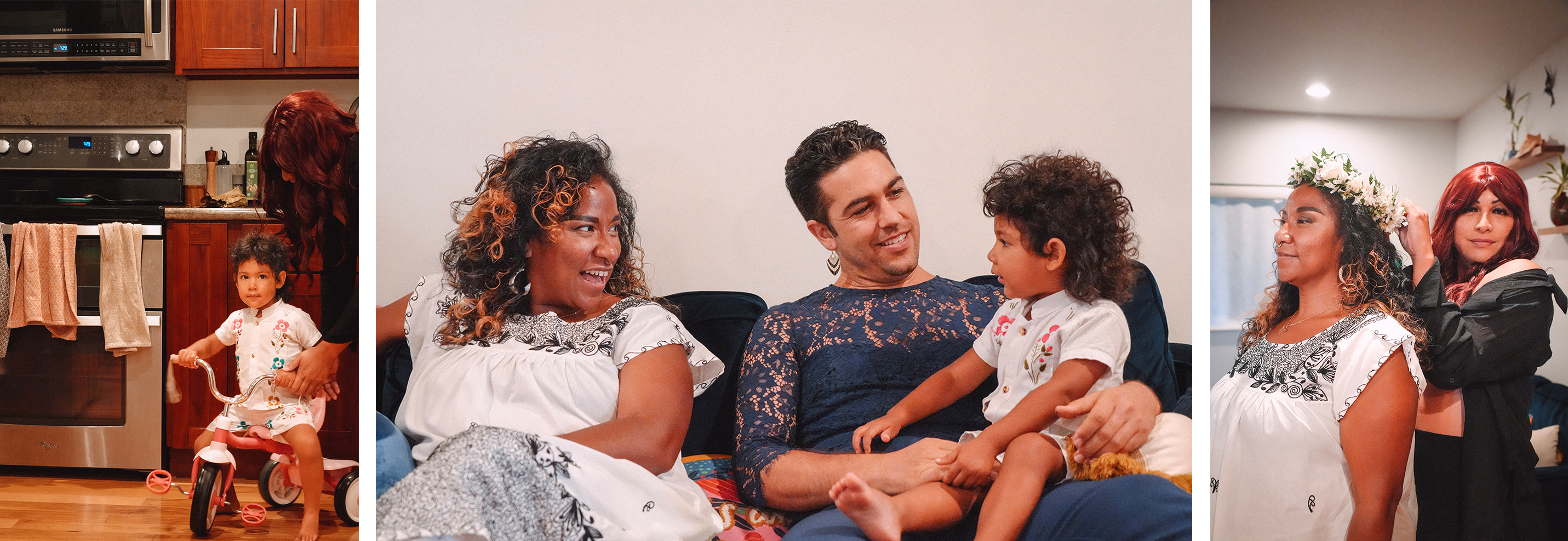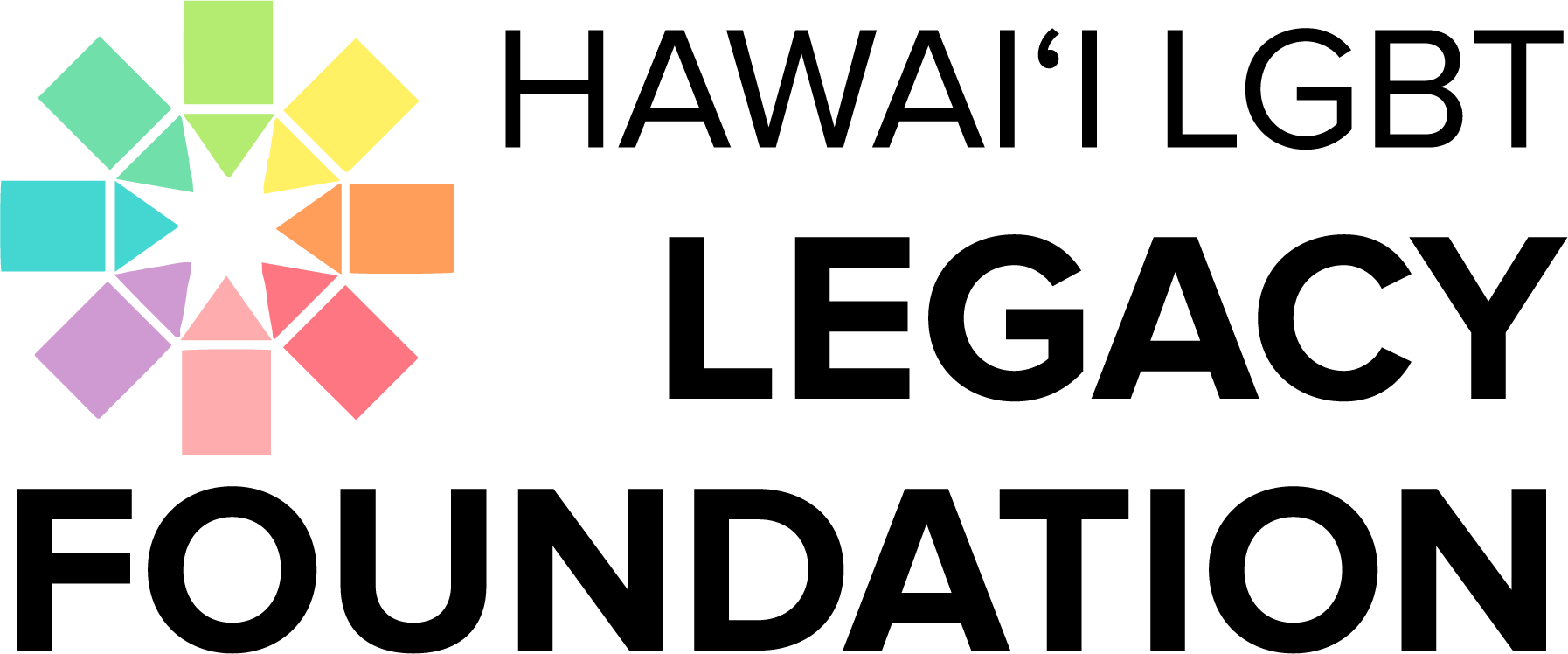A VISUAL STORY TELLING PROJECT BY MARIANA MONASI FROM PACHAMAMA CREATIVE CELEBRATING MOTHERHOOD IN ALL ITS FORMS. A PROJECT OF THE HAWAIʻI LGBT LEGACY FOUNDATION, PRESENTED BY CENTRAL PACIFIC BANK.
“We allow keiki to choose who they are…and in our ʻohana we were taught that you have to nourish that relationship that the child has to their chosen path. Their biological family? Always gonna be there. But itʻs their chosen family that you want to nourish them to seek out in their most honest and truthful way. And that sometimes requires a lot of patience, and a lot of trust.” — Tati

Makua Village is the name Mariana lovingly gave this group of folks who are in community and parenthood together. Coming from very different cultures and backgrounds LP (she, Afro-Latinx from Nicaragua) and Rio (pronoun fluid, white and Jewish from Bay suburbs) met in a queer co-op in San Francisco and fell in love. Now they are co-parenting with a group of close Pasifika friends who have become makua to their little one, Tekun.
LP and Rio chose people who they trust rearing Tekun with, including Tati (she, māhū, Kanaka), Be (they, Kanaka), Hercules (they, Bakla, Pinay), Julz (they, Bakla, Pinay), and others who couldn’t join the group that day for the photoshoot and interview. “It was a truly beautiful sight to witness a little one being loved and cared for by such a fluid and diverse group of people,” Mariana observed. “When Rio asked Tekun who are your parents, she immediately replied, ʻUncle Be!ʻ”
LP and Rio had already coparented with other folks in the Bay, and had good boundaries and expectations established with other makua. This village is the true reflection of they indigenous ancestors, who would actually live the spirit of “it takes a village to raise a child”. Building trust, love, and openness between all of them and Tekun, as well as with each other, is a fluid discipline that prioritizes communication and transparency, as they all share with and learn from each other.
“In my life I havenʻt felt that genderʻs had much significance to me, even though I recognize that it has a lot of significance in the world around me. I know that gender is really liberating for some people, even though it hasnʻt given much to me. So Iʻm really excited to give to Tekun the opportunity if she finds the whole concept to be really useful to her, and Iʻm also really excited for her to have a life where sheʻs able to discard the whole concept.” — Rio
“I grew up in an ʻohana which is chosen and biological. My mom and dad are very clear, but they offer me a heteronormative lens. They both grew up with many māhū, so I guess in that sense, it couldnʻt really be totally transphobic, because both of them grew up around LGBT people, so they couldnʻt pretend.” — Tati

“Puʻuhonua literally translates to ʻearth barrierʻ, which is a protection from the elements that seek to destroy you. Parents, our makua, are barriers to safeguard your life from the elements that seek to destroy you. So puʻuhonua and makua are in alignment…” — Tati
“When the drum was banished by the Spanish, our female lineage picked up the mandolin…and they would dance…and we imitate the drum. My group is one of the only groups thatʻs led by women and queer women. Itʻs a group that had a long lineage in the Americas. One of the teachers came to San Francisco and found a women there…to be a leader… and she just happened to have all these lesbians around her…” — LP
